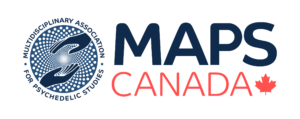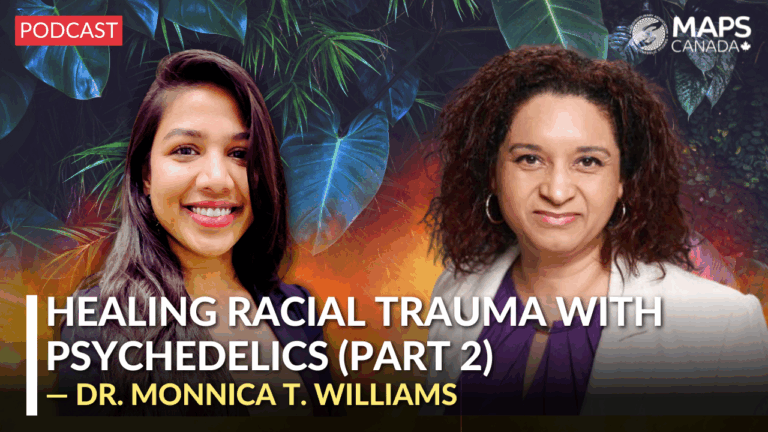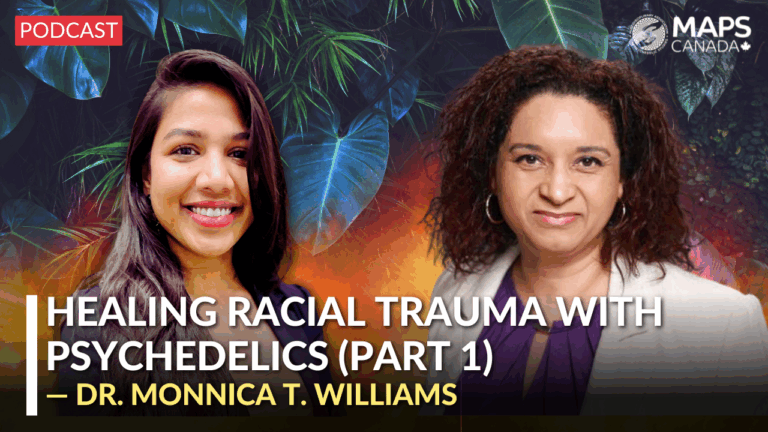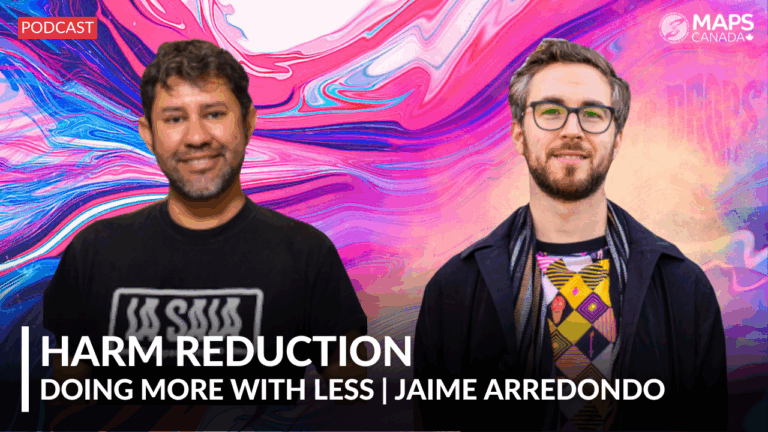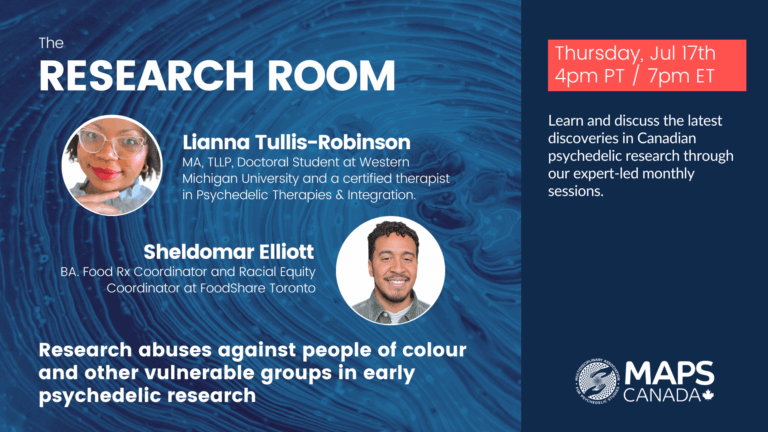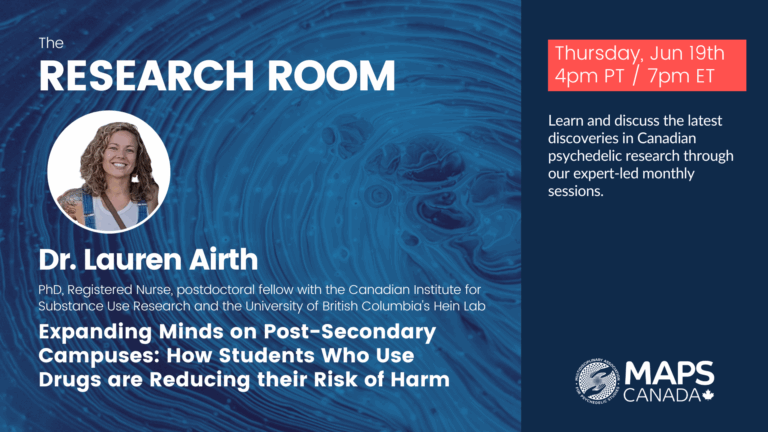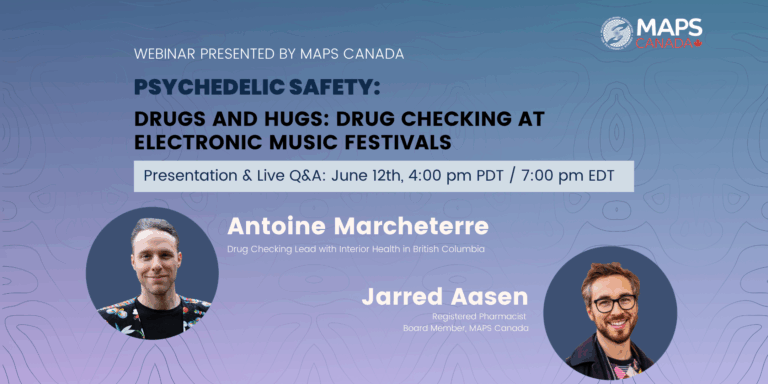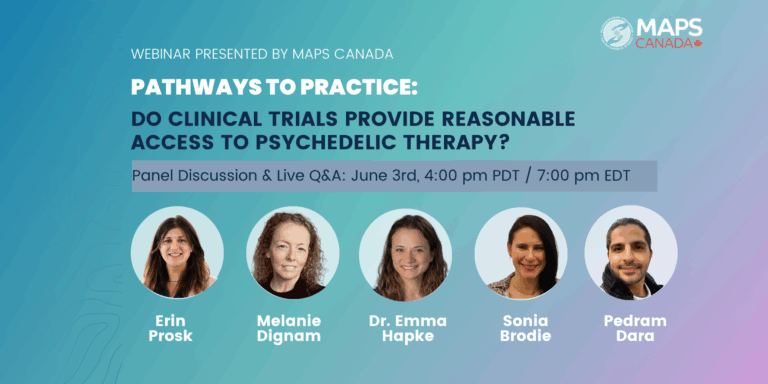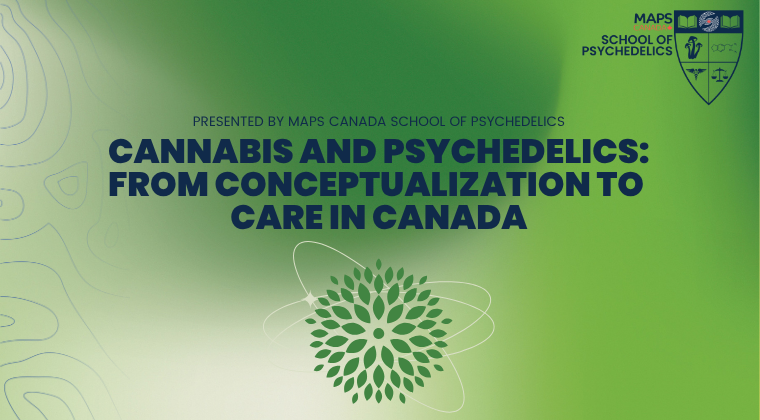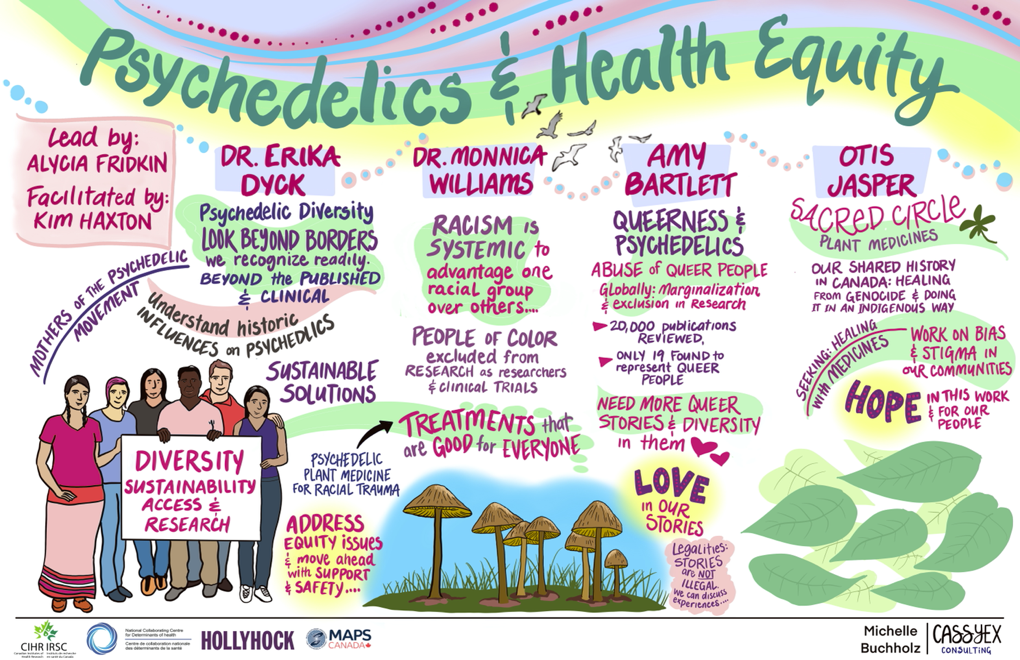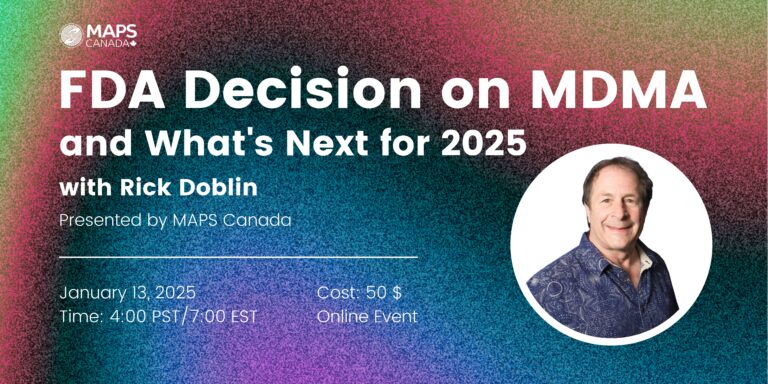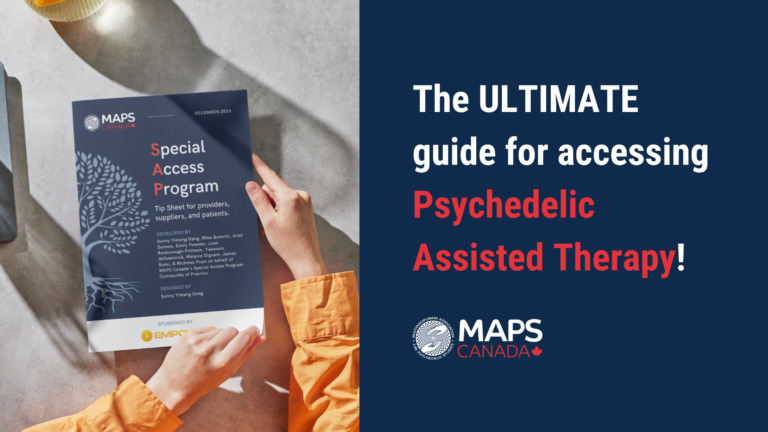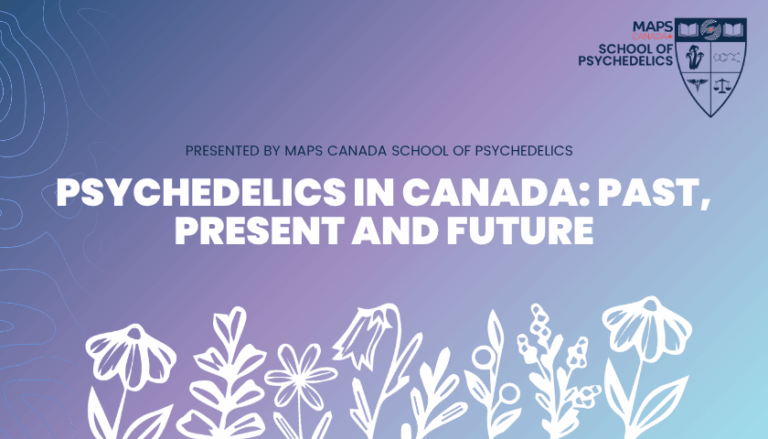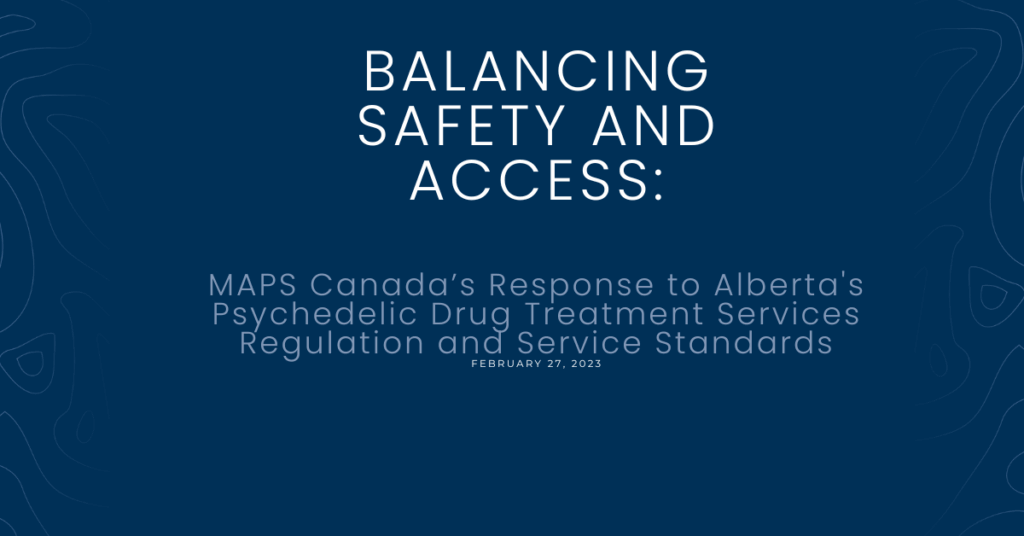Supporting equitable access to legal and regulated psychedelic medicine for all Canadians.
ABOUT OUR WORK
Working with partners in government, business, and the community, MAPS Canada is committed to advancing psychedelic medicine by supporting scientific, multidisciplinary research; advocating for drug policy reform; offering public education; and supporting equitable access to legal and regulated psychedelic medicine in Canada.
LATEST AT MAPS CANADA
July 4, 2025
MAPS Canada presents:
Healing Racial Trauma with Psychedelics | Dr. Monnica Williams (Part 2)
Dr. Monnica T. Williams, a board-certified clinical psychologist and Canada Research Chair based at the University of Ottawa, specializes in BIPOC mental health and psychedelic therapy. She directs the Behavioral Wellness Clinic, has published over 200 scientific articles, and researches racial trauma and culturally competent care. Her work is widely recognized by major psychological organizations and featured in top media outlets.
In this powerful episode, Dr. Williams joins MAPS Canada Podcast host Osheen Dayal to explore the role of psychedelics in healing racial trauma. From the challenges of recruiting diverse participants in clinical trials to the urgent need for culturally competent therapist training, this conversation offers critical insights into the future of inclusive psychedelic therapy.
Topics include:
Racial trauma & PTSD
Microaggressions towards BIPOC community
Safe spaces for BIPOC healing
Cultural humility vs. cultural competence
Risks of commercialization
Watch the full episode to learn how psychedelic therapy must evolve to support true healing for marginalized communities.
Get Test kits: MAPS Canada Store
Website: Trauma psychedelic healing retreat
Psychedelic training retreat: Ketamine-Assisted Therapy Training Retreat
July 4, 2025
MAPS Canada presents:
Healing Racial Trauma with Psychedelics | Dr. Monnica Williams (Part 1)
Dr. Monnica T. Williams, a board-certified clinical psychologist and Canada Research Chair based at the University of Ottawa, specializes in BIPOC mental health and psychedelic therapy. She directs the Behavioral Wellness Clinic, has published over 200 scientific articles, and researches racial trauma and culturally competent care. Her work is widely recognized by major psychological organizations and featured in top media outlets.
In this powerful episode, Dr. Williams joins MAPS Canada Podcast host Osheen Dayal to explore the role of psychedelics in healing racial trauma. From the challenges of recruiting diverse participants in clinical trials to the urgent need for culturally competent therapist training, this conversation offers critical insights into the future of inclusive psychedelic therapy.
Topics include:
Racial trauma & PTSD
Microaggressions towards BIPOC community
Safe spaces for BIPOC healing
Cultural humility vs. cultural competence
Risks of commercialization
Watch the full episode to learn how psychedelic therapy must evolve to support true healing for marginalized communities.
Get Test kits: MAPS Canada Store
Website: Trauma psychedelic healing retreat
Psychedelic training retreat: Ketamine-Assisted Therapy Training Retreat
July 1, 2025
MAPS Canada presents:
Drug Checking, Harm Reduction, & Community | Jaime Arredondo
In this episode of the MAPS Canada podcast, host Jarred sits down with Jaime Arredondo, Canada Research Chair on Substance Use at the University of Victoria, to discuss what harm reduction looks like in other countries, how Jaime got academically involved on substance use issues, and how he is building drug checking capacity across North America.
Join Jaime and Jarred as they ponder how to be a community in the face of adversity, and what it means to adapt harm reduction measures to fit local environments.
July 17, 2025
MAPS Canada presents:
Research abuses against people of colour and other vulnerable groups in early psychedelic research
Thurs, July 17th 7pm EST / 4pm PST
Did you know that incarcerated Black men were experimented on for decades? From 1947 to 1974, the CIA used and exploited Black men in studies to test psychotropic drugs for mind control. These horrific, non-consensual studies took place at ARC (now rebranded as the National Institute on Drug Abuse, or NIDA), a facility that doubled as a prison and research center. For decades, the truth about these experiments has been buried.
Fifty years later, we’re asking: What were the real impacts and consequences for the victims, their families, and Lexington’s Black community?
We are working to uncover the full story through a community-based participatory approach to center the voices of those most impacted and bring justice to this hidden past. Join researchers Sheldomar Elliott, BA and Lianna Tullis-Robinson, MA, to talk about this project, racism in research, and the hidden history of a cold war project called MK-Ultra.
Lianna Tullis‑Robinson, MA, D‑TLLP, is a doctoral student in Counseling Psychology at Western Michigan University and a certified therapist in Psychedelic Therapies & Integration. Her work bridges Compassion‑Focused Cognitive Therapy and culturally responsive approaches within psychedelic research and clinical settings. She is the first doctoral student at WMU to embed psychedelics into her dissertation, focused on optimizing therapeutic protocols for BIPOC communities.
As a recognized speaker—having won international student competitions at Psychedelic Science and PsychedelX—Lianna advances equity in mental health through research, public education, and intentional integration strategies. Overall, her work champions ethical, inclusive psychedelic healing rooted in compassion, cultural awareness, and evidence-based practice.
Sheldomar Elliott is a dedicated food justice leader and racial equity advocate based in Toronto. Currently serving as the Food Rx Coordinator and Racial Equity Coordinator at FoodShare Toronto, he brings years of hands‑on experience tackling food insecurity and advancing food sovereignty for Black, Indigenous, and other marginalized communities.
Rooted in an anti‑oppressive, community‑centered approach, Sheldomar applies his expertise to program design, policy engagement, and public education—centered on ensuring BIPOC voices lead the conversation around equitable food systems
June 19, 2025
MAPS Canada presents:
Expanding Minds on Post-Secondary Campuses: How Students Who Use Drugs are Reducing their Risk of Harm
Thurs, June 19th 7pm EST / 4pm PST
Around the world, youth and young adults engage in substance use for various reasons, including experimentation, socialization, performance enhancement, and to care for their wellbeing. This population includes post-secondary students; in the post-secondary environment, researchers have found that young adults are more likely to increase their substance use and their role in supplying substances. Post-secondary environments also house cutting-edge technology that can be used to identify ingredients in unregulated substances, preventing harm from unexpected contaminants and adulterants amidst the evolving drug supply. In this talk, Lauren will discuss the background and context of the student-run harm reduction team she co-founded and coordinated. She will share about engagement with the student community, including how students are using classroom knowledge to enhance their psychedelic journeys. Additionally, she will highlight what was shared by participants in an implementation science study of the harm reduction team’s on-campus drug checking service including how decision makers, service providers, and students navigated tensions in this political environment. Speaker Bio: Lauren is a registered nurse with a PhD in nursing from the University of British Columbia. For her PhD, she conducted an implementation science study of a multisector (university – community – health authority) student-run harm reduction drug checking service that she co-founded and coordinated. Presently she is conducting research to build robust harm reduction experiential education frameworks for post-secondary students. She is passionate about re-distributing resources from resource-rich institutions to address public health concerns.
June 12, 2025
MAPS Canada presents:
Psychedelic Safety - Drugs and Hugs: Drug Checking at Electronic Music Festivals in British Columbia
Thurs, June 12th 7pm EST / 4pm PST
Join Antoine Marcheterre and Jarred Aasen as they share their experience and knowledge providing drug checking service at two of the largest music festivals in British Columbia. Drug checking data from these events provides a unique insight into the types of drugs that are used by many of the attendees. The presenters will introduce what the current services offer through a user perspective, breakdown last year’s results and discuss the potential public health impacts of drug checking services in isolated meso-environments. The information presented in this webinar is supported by drug checking data from 2024 Festival Infographic – Interior Health Drug Checking.
June 6, 2025
MAPS Canada presents:
Psychedelics, Fentanyl & Radical Drug Policy | Mitchell Gomez on Harm Reduction
In this episode of the MAPS Canada podcast, host Osheen sits down with Mitchell Gomez, Executive Director of DanceSafe, to talk about the evolving psychedelic landscape, the rise of fentanyl in recreational drugs, and why harm reduction—not prohibition—is the future of drug policy. Mitchell shares hard truths from the rave scene, the importance of drug testing, the science behind psychedelic safety, and how law enforcement and public health systems must adapt to the new drug reality. Key topics include:
- Why DanceSafe was founded -Fentanyl’s growing threat
- How technology is improving drug testing
- The case for regulated drug sales -Why LSD is less toxic than water
- The risks and benefits of psychedelics -Community support and peer education
- The importance of training for psychological crises
Learn more by checking out this youtube video: Cross-Institutional Collaborations to Address the Unregulated Drug Crisis
June 3rd, 2025
MAPS Canada presents:
Do Clinical Trials Provide Reasonable Access to Psychedelic Therapy?
Tues, June 3rd 7pm EST / 4pm PST
This webinar highlights perspectives of researchers, clinicians and patients across Canada on clinical trials as a pathway to access psychedelic therapy.
Since the introduction of psilocybin and MDMA to the Special Access Program (SAP) in 2022, there have been many questions of whether this access program is appropriate for psychedelic therapy.
Are clinical trials a better option? What challenges, barriers, opportunities and benefits arise from this pathway?
This webinar will also explore funding options and the development of a MAPS Canada working group for clinical research development.
Panelists:
Dr. Emma Hapke, MD, FRCPC, psychiatrist, psychotherapist and psychedelic researcher at the University Health Network in Toronto
Sonia Brodie, neuroscientist, Director of Growth & Partnerships at CaRe Clinics, and sits on the board of MAPS Canada as Director of Research
Pedram Dara, former MDMA-assisted therapy clinical trial participant and director of Psychedelic Lived Experiences
Melanie Dignam, MSW, RSW, integrative psychotherapist, clinical trial therapist
Host:
Erin Prosk, MSC, President and Co-founder Santé Cannabis
MAPS Canada's School of Psychedelics presents:
Cannabis and Psychedelics: From Conceptualization to Care in Canada
From shifting laws to evolving therapeutic uses, the line between cannabis and psychedelics is more blurred than ever. This course explores where they align—and where they diverge.
Now open for registration!
Full Course Bundle includes 3 courses:
Course 1: Conceptualizations and Communities
Course 2: Mechanisms of Action, Clinical Research, Therapeutic Applications
Course 3: Legal Landscape and Policy Pathways
February 22, 2025
MAPS Canada Presents:
Cafe Scientifique on Psychedelics and Health Equity
Cafe Scientifique – Psychedelic & Health Equity Dialogue:
MAPS Canada was proud to co-host a CIHR-funded event with over 130 attendees that brought together leading researchers from across Canada including Dr. Erika Dyck, Dr. Monnica Williams, Amy Bartlett and Otis Jasper to explore topics such as:
- The history of psychedelics in marginalized communities
- Psychedelics in communities of colour, LGBTQ2S+ spaces, and Indigenous communities
- The challenges of access, regulation, and ethical considerations in the psychedelic space
In addition to the graphic report above, we’ve compiled a full report and recording of the event to share what we learned about the gaps, opportunities, and solutions for health equity in the psychedelic space.
January 13, 2025
MAPS Canada presents:
Catching up with Rick Doblin: FDA's MDMA Decision and What's Next for 2025
Join us online for an exclusive event with Rick Doblin, the founder of MAPS, as we discuss the recent FDA decision on MDMA and what the future holds for 2025. Don’t miss this opportunity to hear firsthand insights from Rick Doblin himself and learn more about the exciting developments in the world of psychedelic research and therapy. Access recording here.
MAPS Canada's SAP CoP Committee presents:
The Special Access Program Tip Sheet
Our SAP Tip Sheet is now live! Learn how you can access Psychedelic-Assisted Therapy (PAT) through Health Canada’s SAP program. You can find tips and templates to streamline your application process!
MAPS Canada's School of Psychedelics presents:
Psychedelics in Canada: Past, Present and Future
Experience the full spectrum of psychedelic knowledge with our complete seminar series. These seven insightful courses cover everything from the historical roots to the modern applications of psychedelics.
BALANCING SAFETY AND ACCESS REPORT
Please read our report on Alberta’s Regulations and service standards, and related recommendations.
